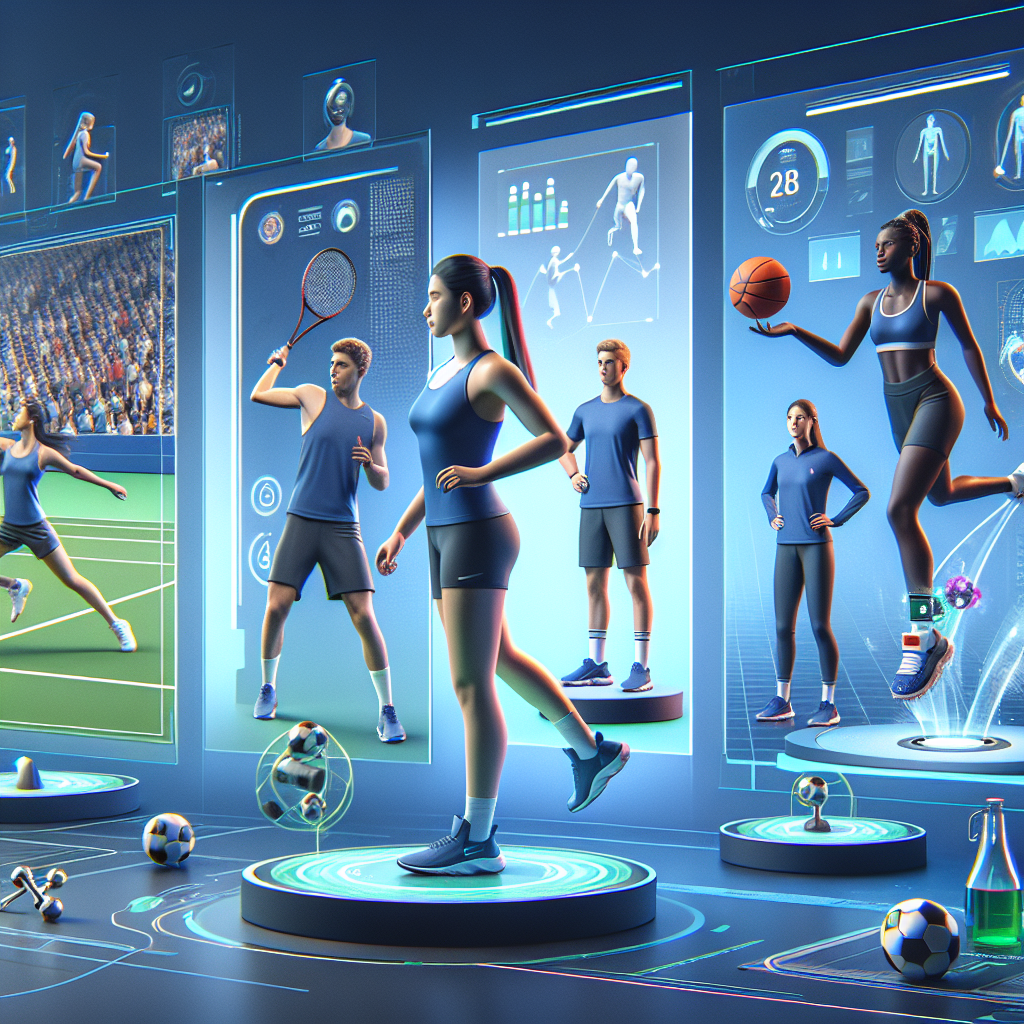In recent years, the use of artificial intelligence (AI) in sports training has become increasingly popular. AI-powered simulations have revolutionized the way athletes train, allowing them to optimize their performance, improve their skills, and reduce the risk of injury. By simulating real-world scenarios and providing instant feedback, AI-powered simulations have become an invaluable tool for coaches and athletes alike.
One of the key benefits of using AI-powered simulations in sports training is the ability to create personalized training programs tailored to the individual needs of each athlete. By analyzing data from sensors and wearable technology, AI algorithms can identify areas for improvement and create customized training plans to help athletes reach their full potential. This level of personalization ensures that athletes are able to focus on the specific skills and techniques that will have the greatest impact on their performance.
Another major advantage of AI-powered simulations in sports training is the ability to simulate real-world scenarios in a controlled environment. By recreating game situations and scenarios, athletes can practice their skills and decision-making abilities in a safe and controlled setting. This allows athletes to hone their skills and improve their performance without the risk of injury or the pressure of competition. Additionally, AI-powered simulations can provide instant feedback on performance, allowing athletes and coaches to make real-time adjustments and improvements.
AI-powered simulations can also help athletes improve their mental toughness and resilience. By exposing athletes to challenging situations and scenarios, simulations can help athletes develop the mental skills needed to perform under pressure and overcome adversity. This can be particularly valuable for athletes competing at the highest levels of their sport, where mental toughness can be the difference between success and failure.
In addition to enhancing performance, AI-powered simulations can also be used to prevent injuries and improve athlete safety. By analyzing biomechanical data and motion patterns, AI algorithms can identify potential risk factors for injury and provide recommendations for reducing the risk of injury. This can help athletes train more effectively and safely, reducing the likelihood of overuse injuries or other common sports-related injuries.
Overall, AI-powered simulations have the potential to revolutionize the way athletes train and compete. By providing personalized training programs, simulating real-world scenarios, and improving mental toughness and resilience, AI-powered simulations can help athletes reach their full potential and achieve peak performance.
FAQs:
Q: How does AI-powered simulations work in sports training?
A: AI-powered simulations use algorithms to analyze data from sensors and wearable technology to create personalized training programs tailored to the individual needs of each athlete. By simulating real-world scenarios and providing instant feedback, AI-powered simulations help athletes improve their skills, performance, and mental toughness.
Q: What are the benefits of using AI-powered simulations in sports training?
A: Some of the key benefits of using AI-powered simulations in sports training include personalized training programs, simulation of real-world scenarios, instant feedback on performance, improved mental toughness and resilience, and injury prevention.
Q: Can AI-powered simulations help prevent injuries in sports?
A: Yes, AI-powered simulations can help prevent injuries in sports by analyzing biomechanical data and motion patterns to identify potential risk factors for injury. By providing recommendations for reducing the risk of injury, AI-powered simulations can help athletes train more effectively and safely.
Q: How can athletes and coaches use AI-powered simulations to improve performance?
A: Athletes and coaches can use AI-powered simulations to analyze performance data, identify areas for improvement, and create personalized training programs to help athletes reach their full potential. By simulating real-world scenarios and providing instant feedback, AI-powered simulations can help athletes improve their skills, performance, and mental toughness.

